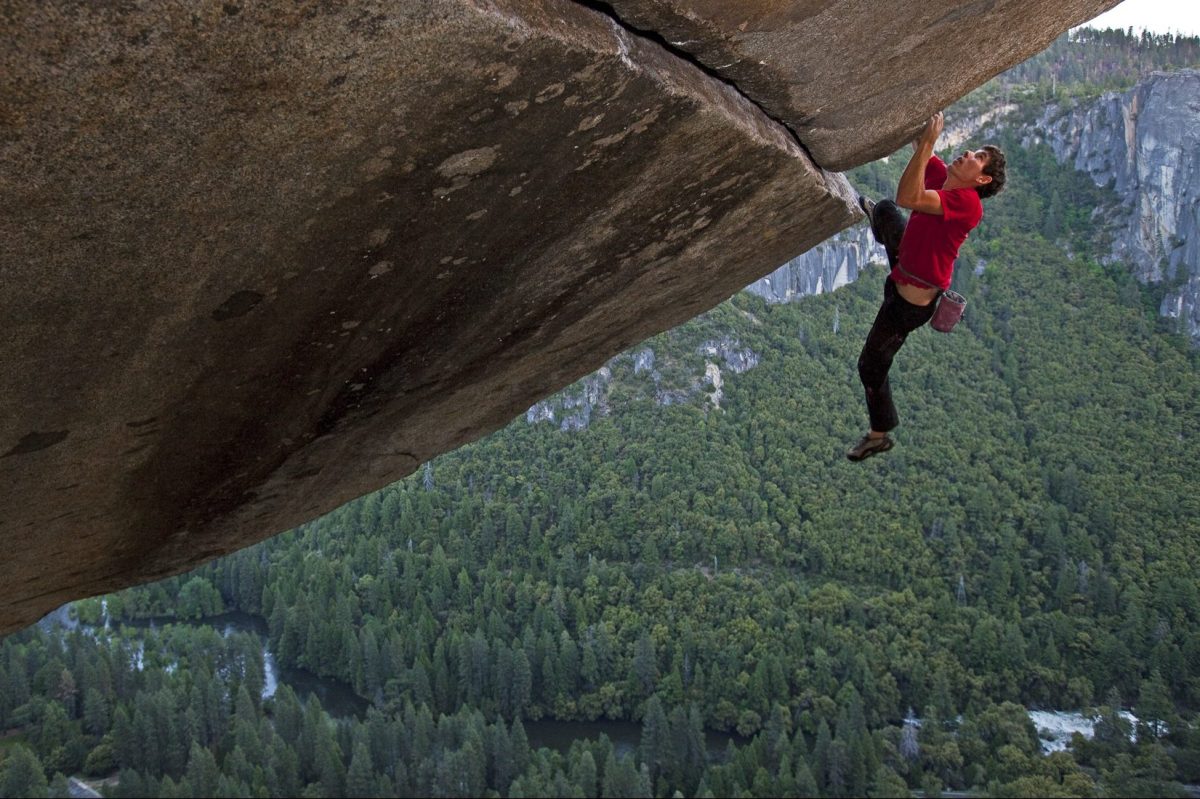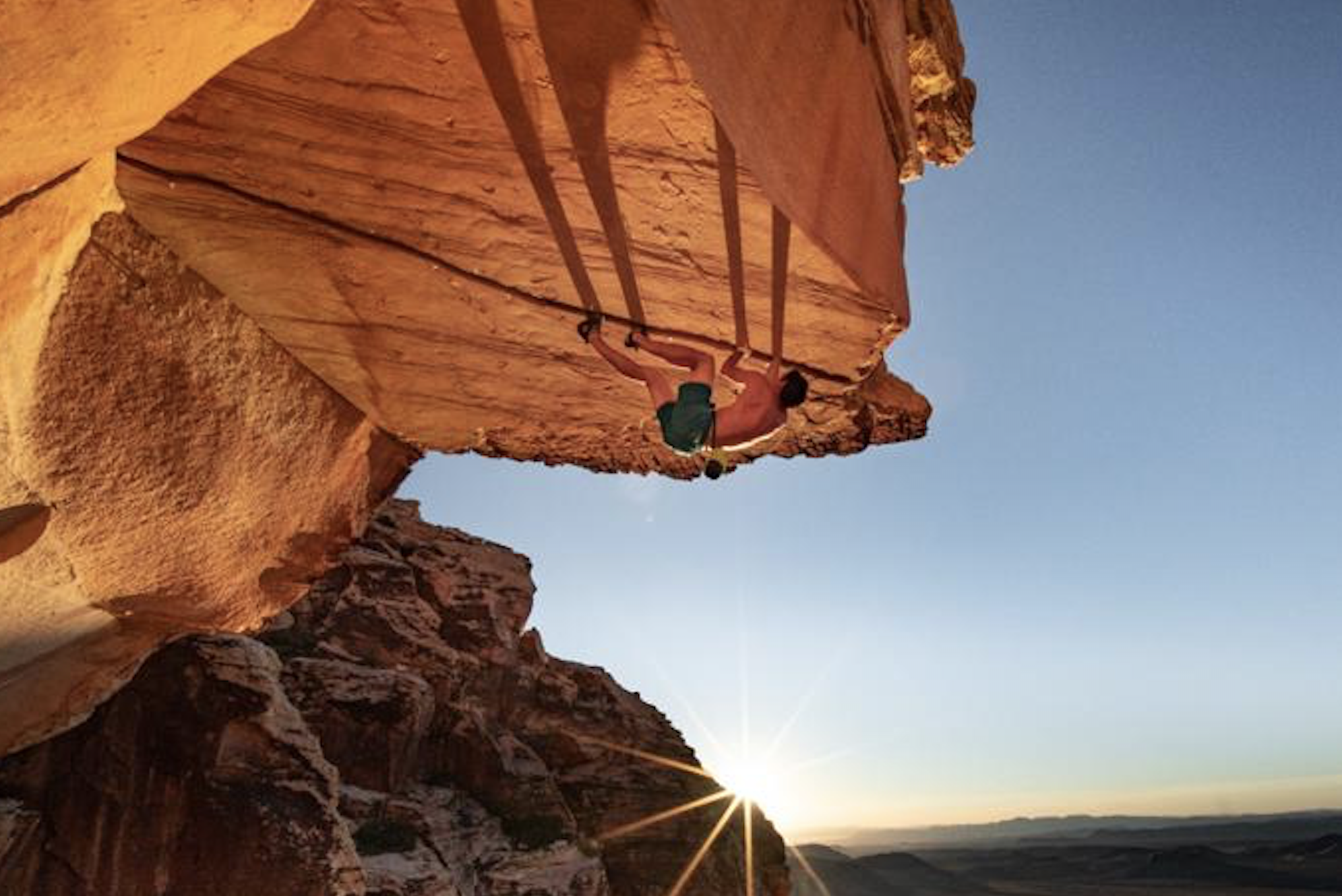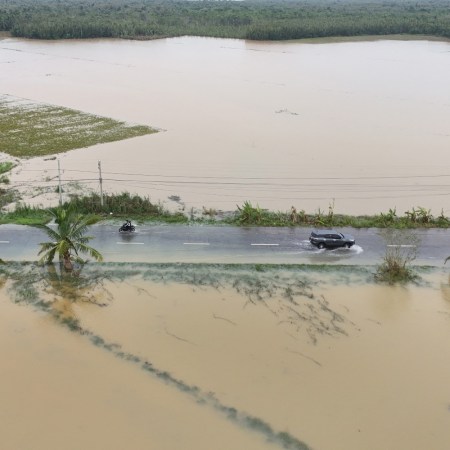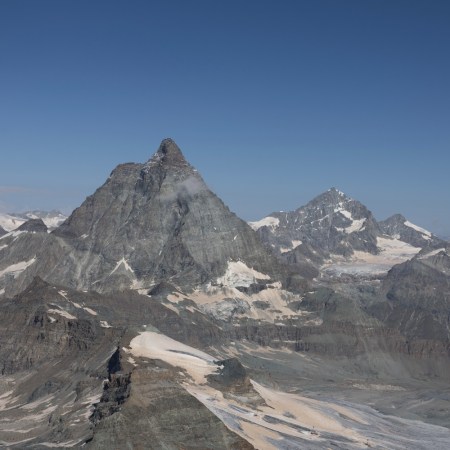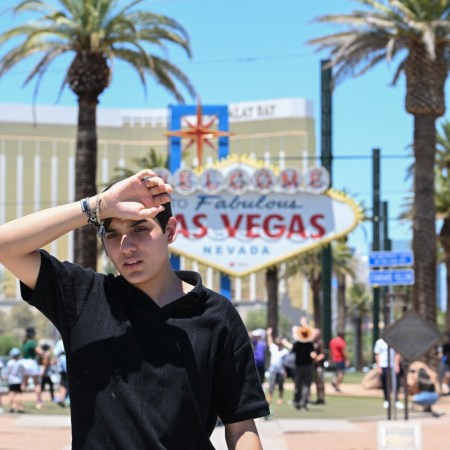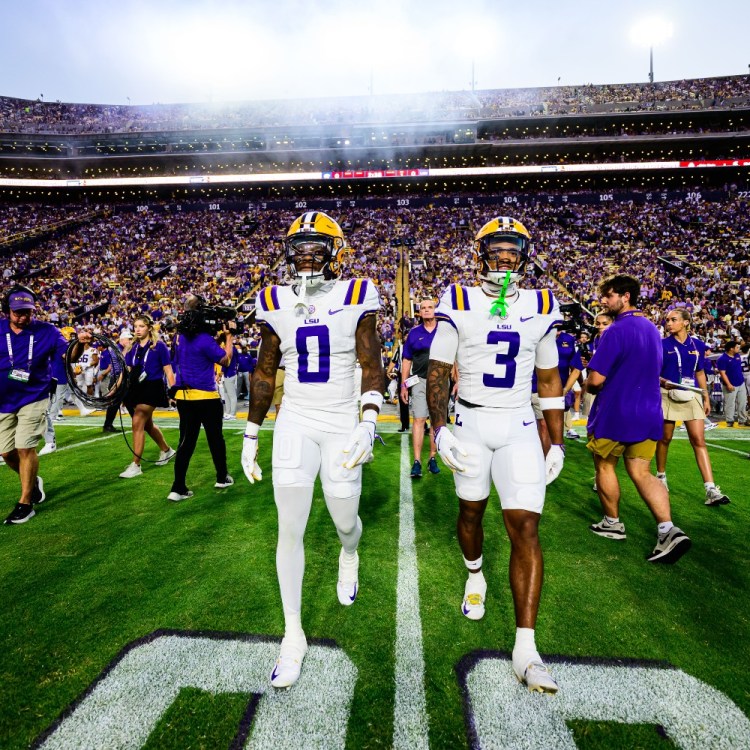If you’ve seen the Academy Award-winning documentary Free Solo or are even remotely familiar with the regularity with which Alex Honnold dangles hundreds of feet above the earth from his bare hands with a miniature crack, tiny ledge or minuscule crease in a wall of sheer rock serving as his sole purchase, you might assume he’s literally fearless.
According to 36-year-old Honnold, whose wife Sanni McCandless recently gave birth to their first child (a girl), that actually isn’t the case. “I’m scared by all the same things as everybody else, basically,” he tells InsideHook. “I don’t want to die. I don’t want to experience terrible pain, I don’t want to lose my loved ones. I just have a lot more practice dealing with fear.”
Honnold, who is the focus of a recently released virtual reality film Alex Honnold: The Soloist VR and will appear in a forthcoming documentary from Nat Geo and Disney+ called The Last Tepui, even has an actual primary fear.
“Climate change is basically the only thing that I worry about. It is just such a base issue and it affects everything else. It really underpins almost every major conflict,” he says. “A lot of the things that are going on in the world, at the base, you have environmental degradation or climate change exacerbating the problems. Scarcity of food and scarcity of water are both affected by climate. It’s a global problem that’s affecting every aspect of human life and human civilization. Big picture, I think that climate change is the most important thing facing the world for the next generation.”
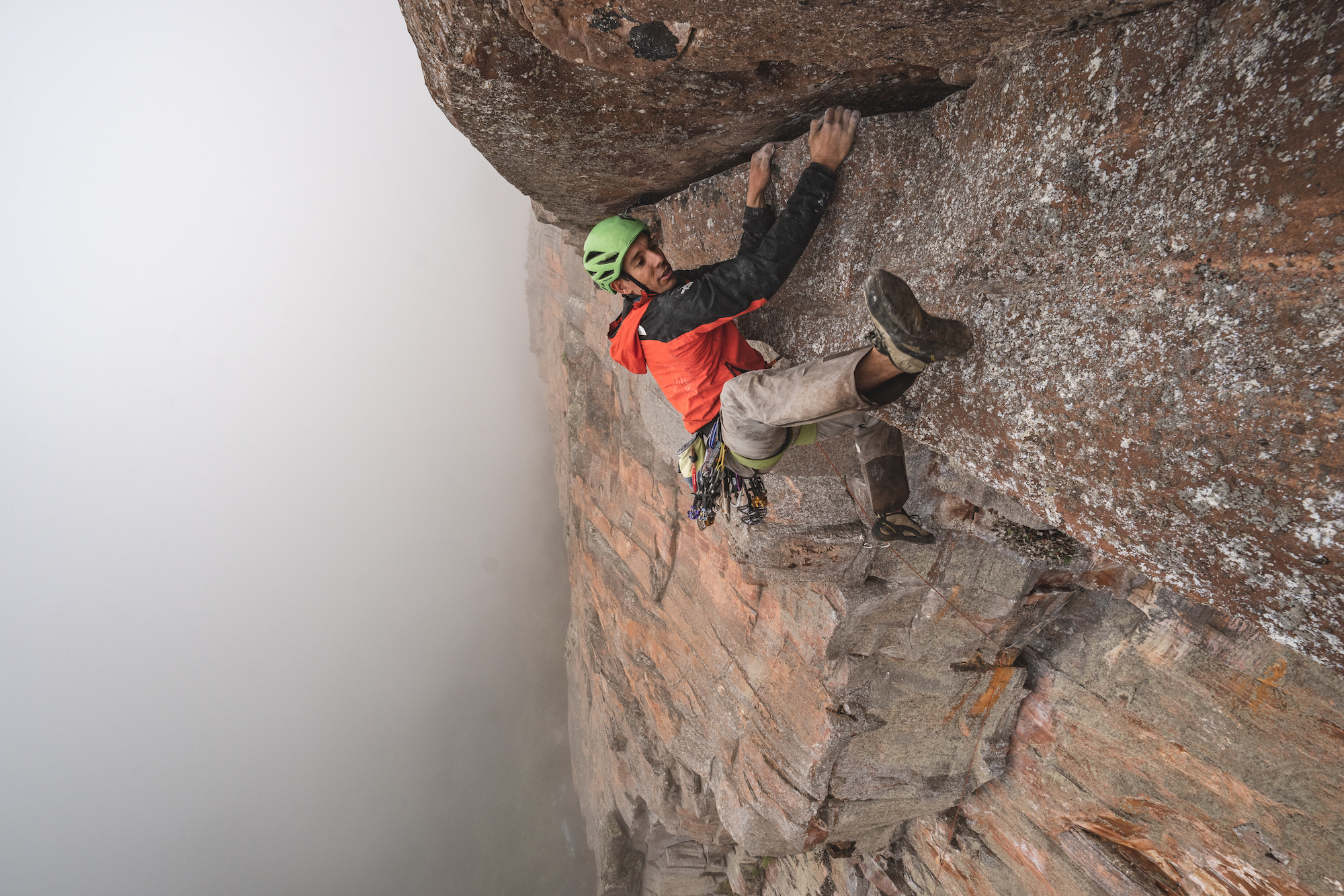
As someone who has climbed to some of the most remote places on Earth, Honnold has first-hand knowledge of some of the changes that the deterioration of the environment has caused in areas where human beings don’t typically tread.
“You see examples of climate change a lot more dramatically in the high mountains. So, as a climber, you see those changes a lot more readily than the average person that lives in a city,” Honnold says. “I just spend so much time in environments that are changing more rapidly. If you live in a city in the Midwest, you can see the environment changing as well in small ways, but you’d have to be pretty into your garden to notice. When you go to the big mountains, you see glaciers moving and retreating and whole ice spaces falling away. Almost anywhere you travel for climbing now, you see examples where the forest and mountains have changed, the snowpack is lower and the glaciers have retreated. I’ve gone to Patagonia to climb in Argentina four or five times and seen former ice routes that are now just collecting snow in a gully instead of freezing and becoming real ice again. I’ve definitely seen ice routes completely melt away and then never really reform because it is just not cold enough or the conditions no longer quite work. It’s slightly sad, but this is the world that we live in now. The world is changing.”
A guy who was living in a van he couldn’t stand up in just a decade ago, Honnold is changing as well, and a decision he made in 2012, while driving back from a day of climbing in Colorado’s Eldorado Canyon, to give away one-third of his income to support solar energy projects has led to the work the Honnold Foundation is doing today.
“Basically, we’re funding solar projects around the world that help people transition to renewable energy and also help the communities where they’re located. It depends on the specifics of each project, but we partner with local groups and support them in various ways so that they can use solar power to improve their livelihoods,” Honnold says. “I think that the transition to renewable energy is an important part of dealing with climate change. I also think the transition to renewables can potentially have the biggest impact on human lives. In particular cases like off-grid scenarios, renewable energy can really improve the quality of people’s lives while also doing something that’s good for the environment. I really like supporting projects that are obvious win-wins like that. It’s good for the environment. It’s good for people. Everybody is winning. Why wouldn’t we do that?”
It’s a good question and one that Honnold, who is also a proponent for sustainable banking through platforms like Ando, has had plenty of time to ponder while climbing, which is when he gets most of his thinking done.
“I would say I do most of my learning about climate change and the environment through reading nonfiction and podcasts and whatever else. But I spend most of my time thinking about it while hiking outdoors, spending time alone in the mountains or climbing with a partner,” he says. “Most people assume that you’re physically climbing the whole time. But most of the time when you go climbing, you’re actually just spending half the day in some spot in nature, hanging out and climbing a bit, but mostly in this place. You really experience nature when you go climbing because you just spend so much time sitting in it, appreciating it, noticing it and being bathed in it.”
With the weather worldwide warming up, Honnold anticipates the nature bath he describes will be a little bit different once it is his daughter’s turn to dip her toe into the water.
“Just the other day I was morbidly joking to my wife that our daughter may never see a coral reef. There’s a very real chance that by the time my daughter comes of age, it’ll be a fully different world,” he says. “Forests will look different and the ocean will be very different. That does make me a little sad and there’s a lot to mourn, but she’s still going to have meaningful experiences in nature, even if nature looks a little bit different. The sad reality is that my life is not going to be the one that’s the most affected by climate change. Living in the developed world, I know that I’m going to be the least affected by the changes. It’s the billion people on earth who are currently living in poverty and the people living in the tropics who are already the most affected by heat and humidity. The worst effects of climate change are going to be felt by the people who are least able to adapt to them and who, frankly, have had the least to do with creating the problem. There’s a real unfairness to that, which is part of what my foundation is trying to address.”
Despite what he’s seen on climbs and foresees for the future, Honnold believes there’s a real reason to be hopeful.
“A lot of environmental coverage is slightly negative where it’s like, ‘Oh, the environment is being destroyed. We should be worried about that. We should try to stop that.’ That’s fair and that’s all totally true. But I feel like there’s also a framing where it can be quite a bit more optimistic,” he says. “As I was saying, so many problems are exacerbated by climate. So, the other way to look at it is that by working on climate change issues, you can also vastly improve so many other problems in human life. It’s this huge problem. Yes. But it’s also a tremendous opportunity to improve the quality of life, the human experience and the world that we live in. There’s a real opportunity there that isn’t recognized sometimes. Climate change coverage poses it as this terrible threat, but you can also pose it like we have this incredible opportunity to make the world much better.”
Given Honnold’s primary line of work, it figures that he’s an optimist.
Whether you’re looking to get into shape, or just get out of a funk, The Charge has got you covered. Sign up for our new wellness newsletter today.
